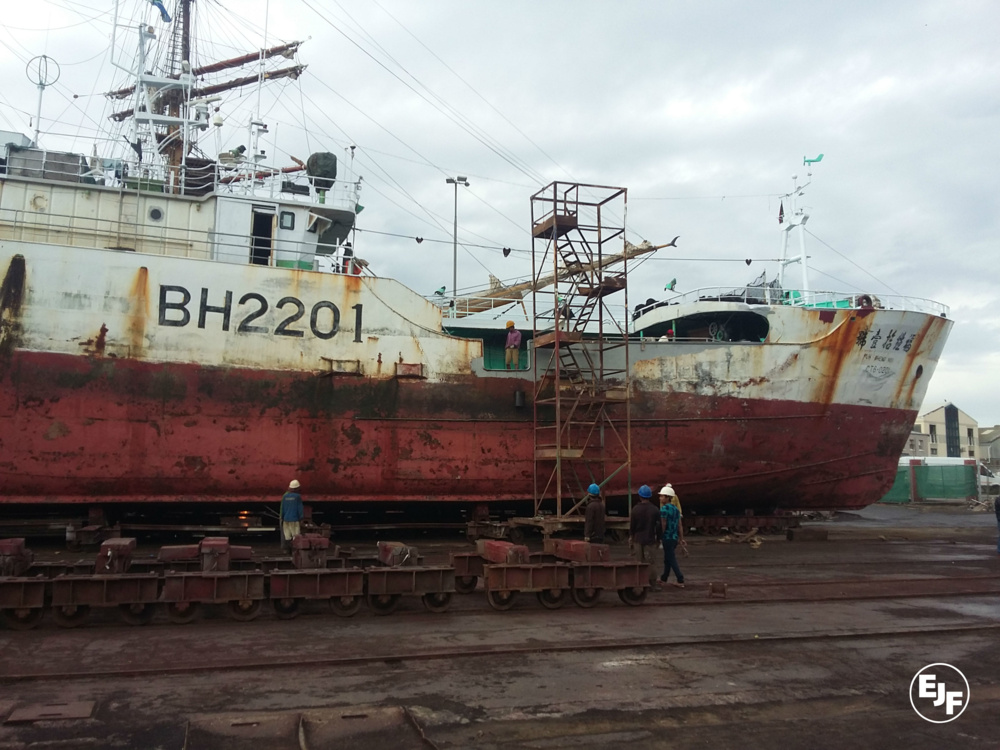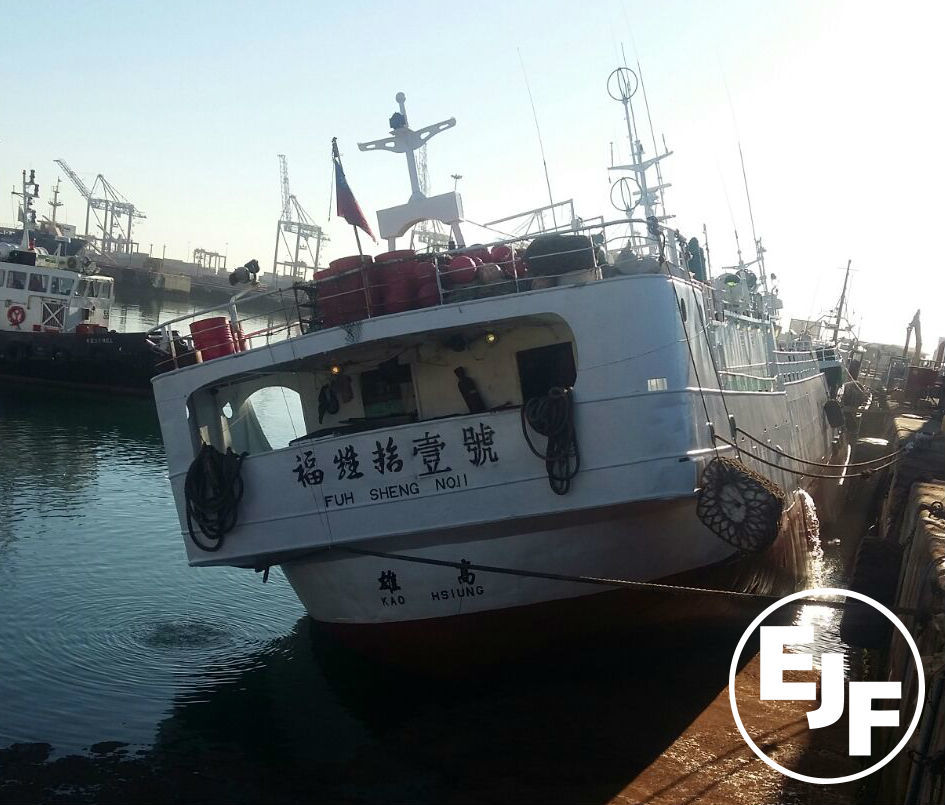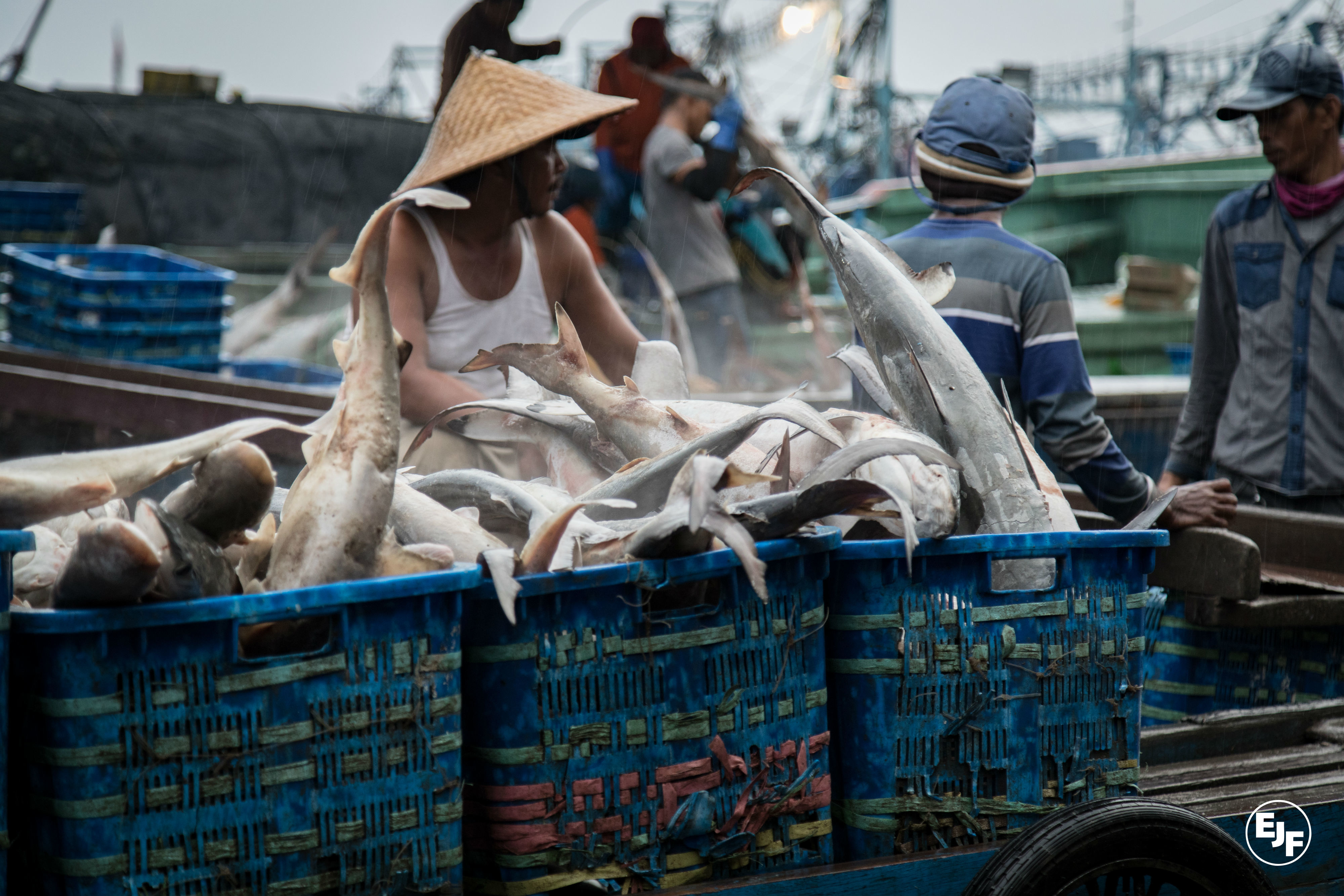
Action taken against abuse aboard Taiwanese vessel after EJF investigation
Taiwanese officials have investigated and confirmed the gross human rights violations aboard the Fuh Sheng No. 11 that were revealed by an Environmental Justice Foundation (EJF) investigation last month. The list of abuses included beatings from the captain, insufficient water, illegal contracts and squalid living spaces and food infested with insects. Criminal procedures against those responsible have now begun.
EJF commends this action but is calling for significant structural reforms to combat this horrendous abuse and illegal fishing in Taiwan’s distant water fleet, including the full adoption of international standards for working conditions on fishing vessels.
In May this year in Cape Town, South Africa, the Taiwanese vessel Fuh Sheng No. 11 became the first in the world to be detained for violating new international standards of decent work in the fishing industry. When it was being held by South African authorities, Taiwan had its first opportunity to take action.
However, Taiwanese authorities made a series of basic errors. Questionnaires were given to crew in the presence of the captain – who allegedly beat them regularly – and the crew said afterwards that they did not know who was giving them the questionnaires or what protections they would have if they reported the true conditions. In addition, no interpreter was present despite some of the men being unable to read the questionnaires.
After this botched investigation, the vessel was allowed to go free and Taiwanese authorities released a public statement claiming there were no abuses.
When EJF subsequently made contact with the crew, they reported beatings from the captain, 22-hour working days and serious injuries to crew working in dangerous conditions. Crew also reported that the vessel had illegally finned sharks, including endangered hammerheads.
After EJF broke the story to the international media and released a film, the Fisheries Agency began an investigation that has now confirmed many of EJF’s findings, including beatings, illegal termination of contracts and wages below the Taiwanese minimum, among other factors.
Taiwanese officials also heard from crew that sharks were finned. The crew provided comprehensive photographic evidence that illegal finning had taken place and this was even confirmed to the Financial Times last month by the vessel owner. EJF was disappointed to learn that authorities have decided not to prosecute the vessel for shark finning despite this wealth of evidence.
EJF is now calling on Taiwan to make reforms to stop similar cases unfolding in this way. This includes adopting international standards for decent working conditions on fishing vessels. The NGO is also calling for authorities to pursue maximum penalties for the crimes documented on the Fuh Sheng No. 11 to serve as a deterrent to others and for compensation to be paid to victims.
“It is encouraging that action is now being taken on human rights abuses on board the vessel, but the handling of this case over the past four months underlines the urgent need for major reforms.” says EJF’s Deputy Director Max Schmid.
“Taiwan should immediately implement fit-for-purpose, standardised procedures and ensure they are robustly implemented. To support this process, the government should commit to bringing its law in line with the International Labour Organization’s Work in Fishing Convention C188, which is designed to prevent exactly these types of situations from occurring, and mandate electronic monitoring on vessels to observe fishing practices. It is also critical that Taiwan steps up its efforts to combat shark finning, an extremely destructive form of illegal fishing.”
- Watch the film
- Donate to EJF
SIGN UP FOR OUR EMAILS AND STAY UP TO DATE WITH EJF

